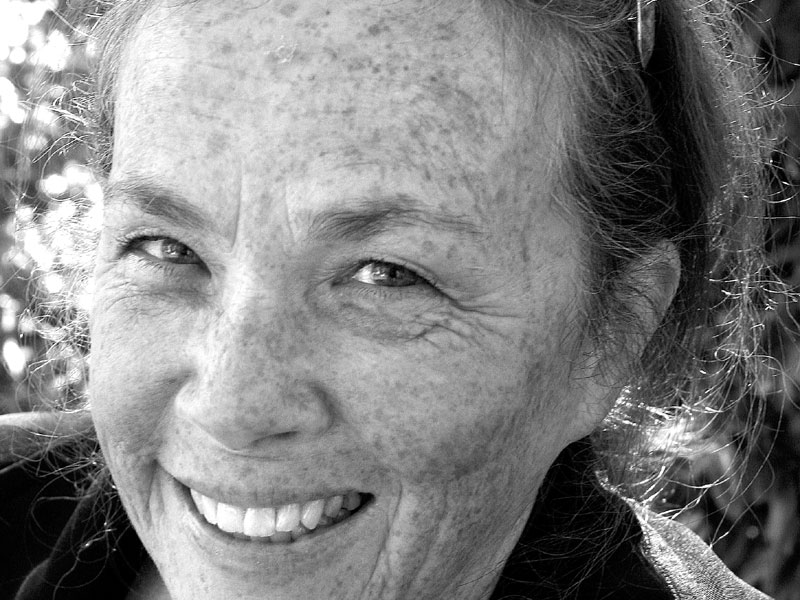Columnists
Statistically speaking

Don’t you just love statistics!? I, for one, am always impressed with something along the line of “The number of doughnuts sold on World Doughnut Day would fill thirty-five Olympic-sized swimming pools.” Imagine, if you can, someone measures the volume of the average doughnut, then finds out how many were consumed on Doughnut Day and then figures out how many doughnuts it would take to fill an Olympic-sized pool! That, right there, is what statistics shouldn’t be aboutm but somehow we love those zany comparisons. So, how about this statistic: One in every eight people in the world live with a mental health issue. That’s a bit harder to comprehend because we aren’t talking about filling a space. We’re talking about living, breathing people. Essentially, what that statistic means is each and every one of us know someone who is living with a mental heath disorder. Chances are there is someone in your circle of family or friends who is mentally ill. You, likely, don’t know it or notice it or know who it is. That’s a statistic.
“Mental health disorders involve significant disturbances in thought processes, emotional regulation and/or behaviour.” It’s easy to understand why mental health disorders are so difficult to accept because, for the most part, we can’t see a mental health problem. People who suffer with mental health problems work very hard to hide the problem. Usually there isn’t an outward sign or look. Let’s face it, most of us aren’t looking for a mental health problems. Often if someone has a problem we think they might be acting “a bit off” or we chalk it up to the weather, the news, work environments, recent bad experiences and life in general. And, while both you and I feel pressure from “life in general”, it doesn’t mean we have a mental health disorder. The reality is, most of us would rather have a traumatic, life-altering, physical injury than have mental health problem. Mental health has always been stigmatized, even in the most progressive countries of the world. In Canada it is considered one of the top social problems. Compared to world statistics, in Canada one in every five people is affected by poor mental health.
“Out of sight, out of mind” is how a lot of us deal with mental health concerns. We can’t see Anxiety Disorders, Depression, Bipolar Disorder, Post Traumatic Stress Disorder, Schizophrenia, Eating Disorders, Disruptive Behaviours and Dissocial Disorders or Neuro-developmental Disorder unless the sufferer is physically acting out. Often we think those acting-out behaviours are just fleeting. It’s easy to miss a true mental health problem if we’ve been taught to react to those problems with weasel words and phrases like “lunatic, nuts, insane, the cheese slipped off the cracker, a few bricks short a load, flew off the handle or looney tunes”. We diminish the problem by using slang terms. Mostly, we’ve become used to those words to describe someone’s behaviour because it makes a situation seem lighthearted or unimportant. We don’t want to feel uncomfortable, we don’t know what to say, we don’t know how to act and we don’t want to talk about it. But, empathetic friends and family can make a difference to a person who is suffering. If you know someone who is seems to be struggling, reach out and let them know you are available to listen, hold hands, hug and help. Doing research to help someone find mental health services, learning and sharing self-care and coping techniques, treating them with respect and refusing to define their illness or diagnosis with “those labels” goes a long way to give a hand-up to a person who is in poor health—mental or physical.
The Canadian Mental Health Association has an online profile with excellent suggestions and solid information. However, according to the CMHA, “Mental illness treatment and support is still not met with the resources and funding allocated to physical illness.” Additionally, many sufferers are not seeking a diagnosis because they don’t want to live with the stigma and the discrimination. Like poor physical health, poor mental health is costly with time being lost through unemployment and absenteeism amongst people who are struggling at work. Until the support situation changes, we can spend a bit of time learning more about the signs of mental illness and offering support to our friends and family in need. We can be the supportive statistic. We can be the person who was there when our loved one needed us most.
In Prince Edward and Hastings, help is available. If you, or someone you know, are/is in crisis, please call the Crisis Intervention Centre at 613-969-7400 ext. 12753, 24 hours a day, 7 days a week. The 9-8-8 Suicide Crisis Helpline is also a 24/7 support service. Call or text 9-8-8.

Comments (0)